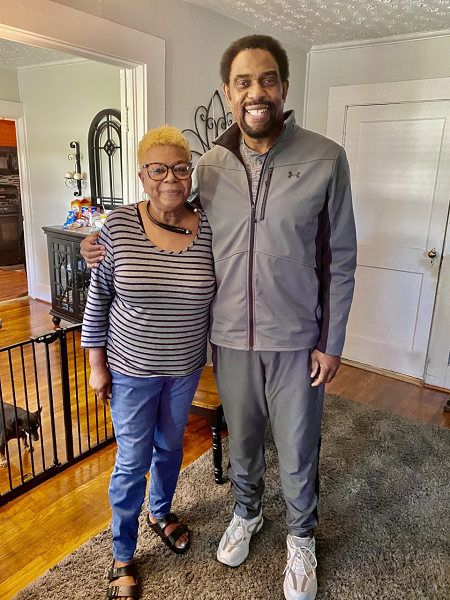By Abdul Seraaj
Edited by Intisar Seraaj
Editor’s Note: The CEO of Seraaj Family Homes, Inc. (SFH), Abdul Seraaj, is currently making personal visits to some of the agency’s foster parents, as he likes to model the kind of continuous quality improvement practices our employees should practice. Although he’s the CEO now, Seraaj and his cofounding partner began the company while functioning in most of the roles themselves, including case manager, foster parent, and therapist. So, Seraaj often reverts back to his foundational roles and education—with a master’s degree in family and marital counseling—and makes home visit to clients himself. This keeps his skills sharp, allows him to personally connect with our foster parents, and exhibits the quality of home visits employees are expected to conduct. The series “Spring 2021 Foster Parent Visits” on our blog give us a look at his field notes for his visitations. Here’s his experience from visiting our foster parent Brenda Cope.
I’m finding that the majority of SFH PFTs (“professional family teachers” or foster parents), who are over 65 years of age, seem to view having foster kids within their home as a part of a holistic health and wellness lifestyle. These PFTs can explain, in specific detail, the benefits of how having a foster child placed in their home has enhanced their physical, emotional, mental, and spiritual health. This is how Brenda Cope, a passionate and awesome 71-year-old care provider, views her responsibilities as an SFH PFT. Cope was recruited by PFT Emma Dubois. When her mother passed away, just shy of her 101 birthday, Cope decided to become an SFH PFT.
Cope should be thought of as an “angel in disguise.” She has the kind of patience many of us could never have while working with a youth with special needs who needs 24/7 care. [Her foster son came to her when he was 8 years old.] Now, at 12 years old, he’s grown stronger and taller and seems to be in constant motion, wanting to touch and explore.
[Cope has much to do to care for her foster son,] including grooming, feeding, bathing, and physical, occupational and speech therapy. He also must still wear diapers, which Cope and SFH staff members change. I highly advise us to study the personal characteristics, qualifications, work experience, and work ethic of the SFH team that provides supportive services to Cope and her foster son.
He also has seizures that occur frequently and unexpectedly. His seizures can occur [at] night while he’s sleeping and while the PFTs are sleeping. His seizures have the potential of being life-threatening if they go undetected and untreated. Cope must administer an injection into her foster son’s rectum whenever he experiences severe seizures at night. Therefore, Cope sleeps in the same room with her foster son [to make sure he’s OK]. Cope must feed him in a similar way to how nursing home staff must feed some of their elderly patients, due to his seizures and the possibility he might bite his tongue. Cope has many years of experience working in nursing home facilities and was the caregiver for her mother for 14 years. Her mother lived to be almost 101 years old.
Cope did not complain about making such great sacrifices. She explained to me that she needed her foster son just as much as he needed her. To watch them interact with each other and to see her face when she talks about him, [is a spiritual experience].
Cope said, “I have two dogs with disabilities, I have a husband with disabilities, and I have a foster child with severe disabilities. My daily routine is centered around caring for all these individuals with disabilities, whom I dearly love. I wake up to feed my dogs, feed my foster child, feed my pet fish, and then I feed my husband.” She said all of this while smiling. I have to say, she is an amazing PFT who talks about her foster son with the most compassionate, loving, and caring language.

